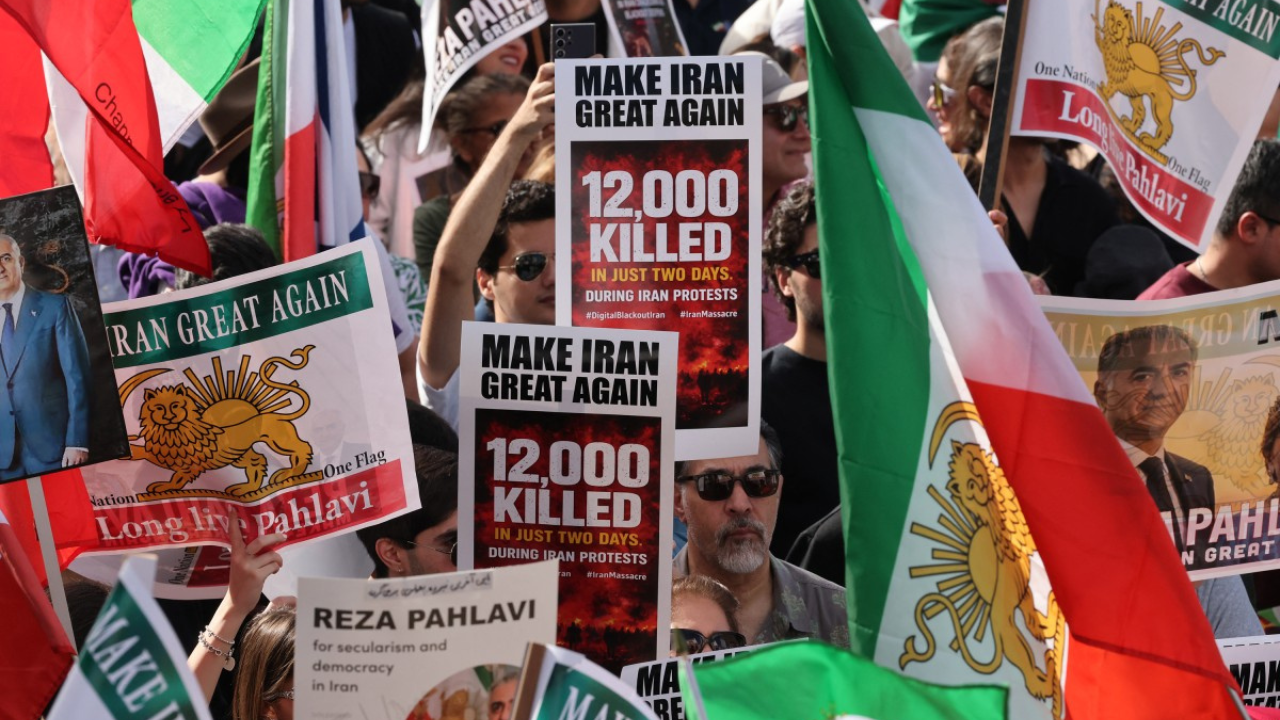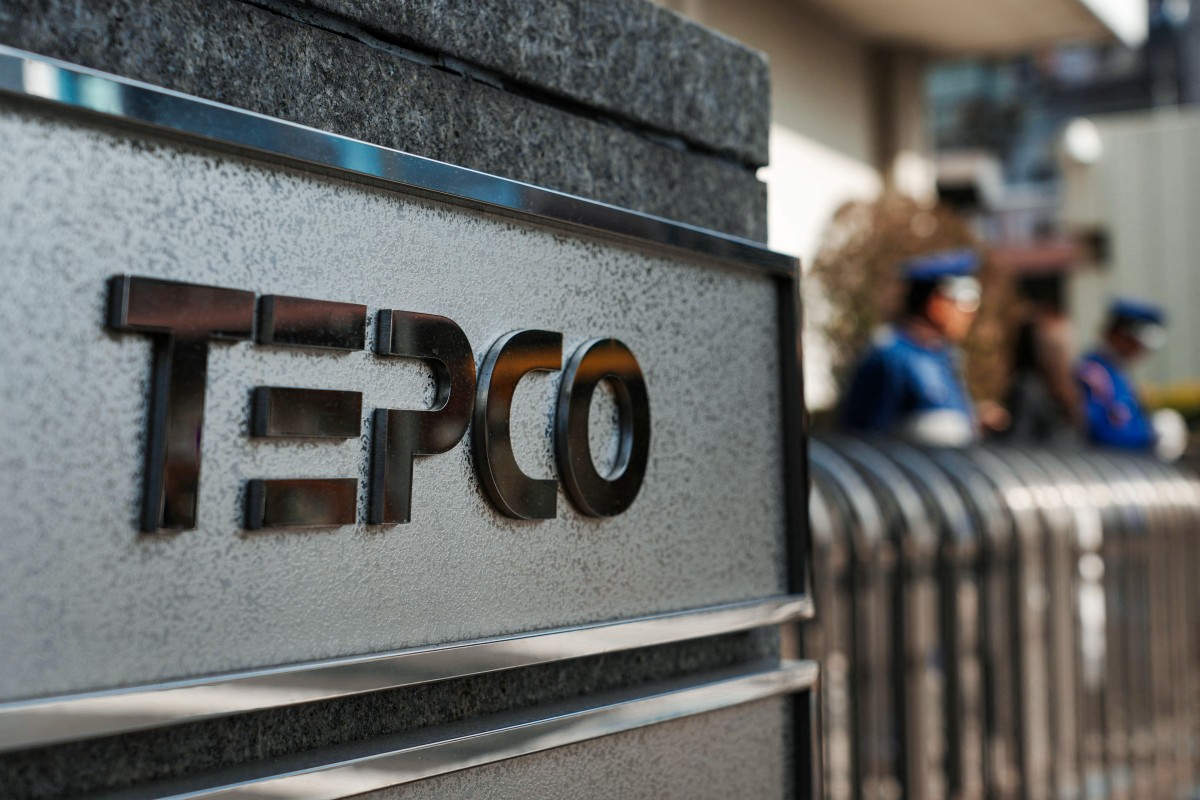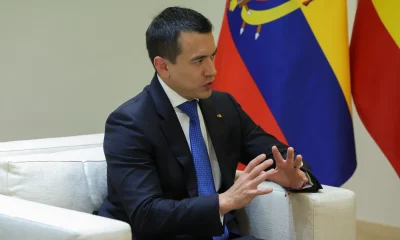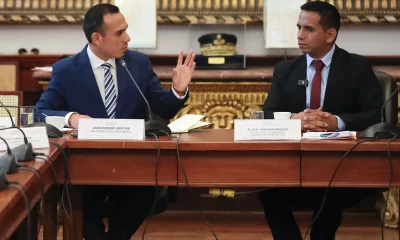International
Colombian dies publicly under new euthanasia policy
AFP
Victor Escobar decided to die and to do so publicly, becoming one of the first Latin Americans to end their life without suffering from a terminal disease, under a ground-breaking court ruling in Colombia.
Hours before dying on Friday, 60 year old Escobar celebrated what he called victory in his two-year battle with a lung ailment that left him unable to breathe on his own.
“Little by little, it becomes everyone’s turn. So I do not say goodbye but rather, see you soon. And little by little we will end up with God,” Escobar, who is a practicing Catholic, said in a video sent to news organizations.
He died in the city of Cali with doctors present, his lawyer said on Twitter.
The last footage of him alive shows him smiling and surrounded by family. He was sedated and then given a lethal injection.
Colombia depenalized assisted death in 1997, and in July 2021 a high court expanded this “right to dignified death” to those not suffering from a terminal illness.
It is the first Latin American country to take the step and one of the few in the world, and did so despite being mostly Roman Catholic. The church categorically opposes euthanasia and assisted suicide.
“I was already feeling sick. I felt like my lungs did not obey me,” Escobar told AFP in October as he waged the final chapter of his legal battle.
– Non terminal-
Diabetes and a cardiovascular ailment left him in a wheel chair and suffering from spasms that wracked his body.
His family backed the idea of euthanasia.
In Europe only Belgium, the Netherlands, Luxemburg and Spain have legalized euthanasia.
Colombia may have joined that list but access to the procedure is not always smooth.
As of mid-2021 patients like Escobar — with chronic diseases and a life expectancy of more than six months — could not undergo euthanasia.
“They were being forced to live in undignified conditions against their will,” said Monica Giraldo of an NGO called the Foundation for the Right to Dignified Death.
She said that since the court ruling on euthanasia, three people with non-terminal diseases used it to end their lives but Escobar is the first to do so with cameras rolling so the public could witness it.
“I want my story to be known because it creates a path for patients like me, patients with degenerative conditions, to have an open door to seek rest,” Escobar said.
Escobar has said he got ill from years of working with exposure to asbestos, an insulating material now known to cause cancer.
– Permission to die –
In October of last year a panel at the Imbanaco clinic rejected Escobar’s request for euthanasia, after two years of earlier petitions that were also rejected.
The committee argued that Escobar was not terminal and there were still ways to try to alleviate his suffering.
Days earlier in another city, Medellin, 51 year old Martha Sepulveda, suffering from amyotrophic lateral sclerosis, also saw her request to die cancelled at the last minute on grounds that she was not terminal.
Giraldo said hospitals sometimes deny euthanasia requests over “ideological positions” or scrap them at the last minute over legal concerns.
But Escobar appealed in court and won. He chose to die on January 7 — a Friday, so it would be easy for relatives to go to his funeral on the weekend, his lawyer said.
“I suffer from my diseases, and I suffer watching ny family suffer because of me,” Escobar said in October, gasping for breath.
The courts also granted permission for Sepulveda to die. Like Escobar she had gone public with her case.
The government says at least 157 people have chosen euthanasia since the July 2021 legal change.
Giraldo’s foundation is now working with five people seeking assisted suicide, two of them with non terminal conditions.
Shortly before dying, Escobar said God does not like to see people suffer.
“I do not think God will punish me for trying to stop suffering,” he said.
International
Guatemala considers sending high-risk gang members to military prisons

Amid the escalating crisis in Guatemala’s prison system, the government is considering transferring high-risk gang members to military-run detention facilities, a move that analysts say could help address overcrowding and the lack of control in civilian prisons.
The debate has gained urgency following the killing of ten police officers by gang members, reportedly in retaliation after the government refused to meet demands made by Aldo Dupie Ochoa, alias “El Lobo,” leader of the Barrio 18 gang, which authorities identified as responsible for the attack.
Guatemala’s Minister of Defense, Henry David Sáenz, told local media that the possibility of relocating high-danger inmates to military brigades has not been formally discussed. However, he noted that the practice is not new to the Armed Forces and said it is something that “was already being done.”
One example is the detention center located within the Mariscal Zavala Military Brigade, in Zone 17 of Guatemala City, where several inmates are held under military supervision. The facility also houses high-profile detainees, including former official Eduardo Masaya, who faces corruption charges.
In 2015, a ministerial agreement authorized the establishment of the Zone Seventeen Detention Center within the brigade, with a maximum capacity of 114 inmates in Area A and 21 in Area B. The agreement specified that the facility would be used exclusively for civilians or military personnel considered at risk of assassination.
Additionally, since 2010, a prison has operated within the Matamoros Barracks in Zone 1 of Guatemala City, holding dangerous or high-profile inmates. However, media outlets have described these military detention centers as “VIP prisons,” particularly for former government officials such as ex-president Otto Pérez Molina.
International
Rights group says over 5,000 killed in Iran protests, mostly civilians

A U.S.-based human rights group said on Friday it has confirmed that more than 5,000 people were killed during the recent protests in Iran, most of them civilians allegedly shot by security forces.
Non-governmental organizations monitoring the toll from the crackdown on what have been described as the largest demonstrations in Iran in years said their work has been hampered by an internet shutdown imposed by authorities since January 8. They warned that the actual death toll is likely significantly higher.
The Human Rights Activists News Agency (HRANA), based in the United States, reported on Friday that it had verified the deaths of 5,002 people, including 4,714 protesters, 42 minors, 207 members of the security forces, and 39 bystanders.
The group added, however, that it is still investigating an additional 9,787 possible deaths, underscoring the difficulty of independently confirming information amid ongoing restrictions and repression.
International
Japan reopens Kashiwazaki-Kariwa Plant despite public concerns

La centrale nucléaire japonaise de Kashiwazaki-Kariwa, la plus grande au monde, a repris ses activités mercredi pour la première fois depuis la catastrophe de Fukushima en 2011, malgré les inquiétudes persistantes d’une partie de la population.
La remise en service a eu lieu à 19h02 heure locale (10h02 GMT), a indiqué à l’AFP Tatsuya Matoba, porte-parole de la compagnie Tokyo Electric Power (Tepco).
Le gouverneur de la préfecture de Niigata, où se situe la centrale, avait donné son feu vert à la reprise le mois dernier, en dépit d’une opinion publique divisée. Selon une enquête menée en septembre par la préfecture elle-même, 60 % des habitants se déclaraient opposés au redémarrage, contre 37 % favorables.
Mardi, plusieurs dizaines de manifestants ont bravé le froid et la neige pour protester près de l’entrée du site, sur les rives de la mer du Japon.
« L’électricité de Tokyo est produite à Kashiwazaki. Pourquoi seuls les habitants d’ici devraient-ils être exposés au danger ? Cela n’a aucun sens », a déclaré à l’AFP Yumiko Abe, une riveraine de 73 ans.
La centrale de Kashiwazaki-Kariwa avait été mise à l’arrêt lorsque le Japon a fermé l’ensemble de ses réacteurs nucléaires à la suite du triple désastre de mars 2011 — un séisme, un tsunami et un accident nucléaire — survenu à Fukushima.
-

 Central America4 days ago
Central America4 days agoGuatemala raises police death toll to nine after gang violence escalates
-

 International4 days ago
International4 days agoDeath toll from southern Spain train crash rises to 40
-

 International2 days ago
International2 days agoMexican influencer “La Nicholette” kidnapped in exclusive area of Culiacán
-

 International3 days ago
International3 days agoDaily Mail publisher insists reports relied on legitimate sources amid privacy trial
-

 International4 days ago
International4 days agoOver 160 christian worshippers kidnapped in Kaduna Church attacks
-

 International3 days ago
International3 days agoGermany says football bodies alone will decide on possible World Cup boycott
-

 International2 days ago
International2 days agoMajor winter storm to blanket U.S. and Canada with snow, ice and arctic cold
-

 International2 days ago
International2 days agoTrump announces preliminary NATO agreement on Greenland, suspends tariffs on Europe
-

 Central America1 day ago
Central America1 day agoMazatenango Carnival cancelled amid State of Siege in Guatemala
-

 International1 day ago
International1 day agoMarkets rise as Trump halts Europe tariffs and floats Greenland agreement framework
-

 International4 days ago
International4 days agoSpain’s Prime Minister pledges transparency after train crash kills at least 39
-

 International2 days ago
International2 days agoColombia slams Ecuador’s 30% tariff as ‘economic aggression’
-

 International1 day ago
International1 day agoVenezuela’s interim president predicts 37% increase in revenues for 2026
-

 International1 day ago
International1 day agoTrump to invite Venezuela’s interim president Delcy Rodríguez to Washington
-

 International1 day ago
International1 day agoFour minors killed in deadly clash between FARC dissidents in Colombia’s Amazon
-

 International1 day ago
International1 day agoJapan reopens Kashiwazaki-Kariwa Plant despite public concerns
-

 International2 days ago
International2 days agoJosé Jerí claims destabilization attempt after videos of secretive meetings surface
-

 Internacionales7 minutes ago
Internacionales7 minutes agoMajor winter storm threatens “catastrophic” ice and snow across much of the U.S.
-

 International3 minutes ago
International3 minutes agoRights group says over 5,000 killed in Iran protests, mostly civilians



























